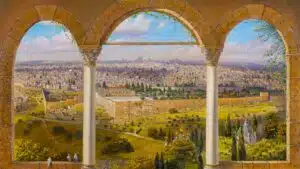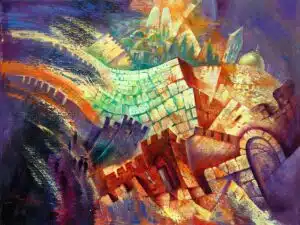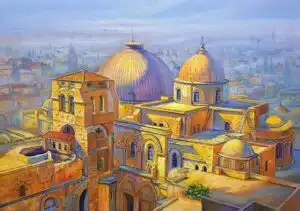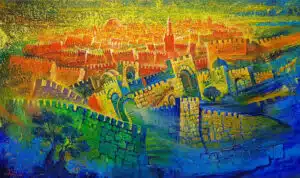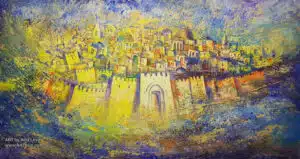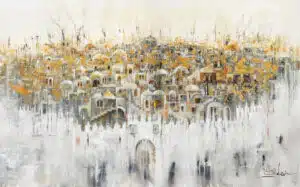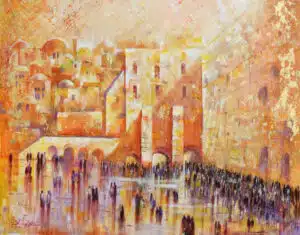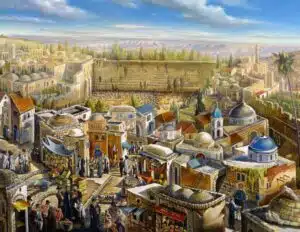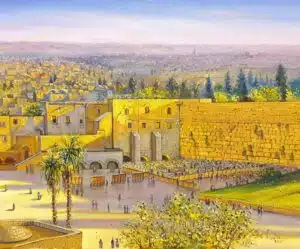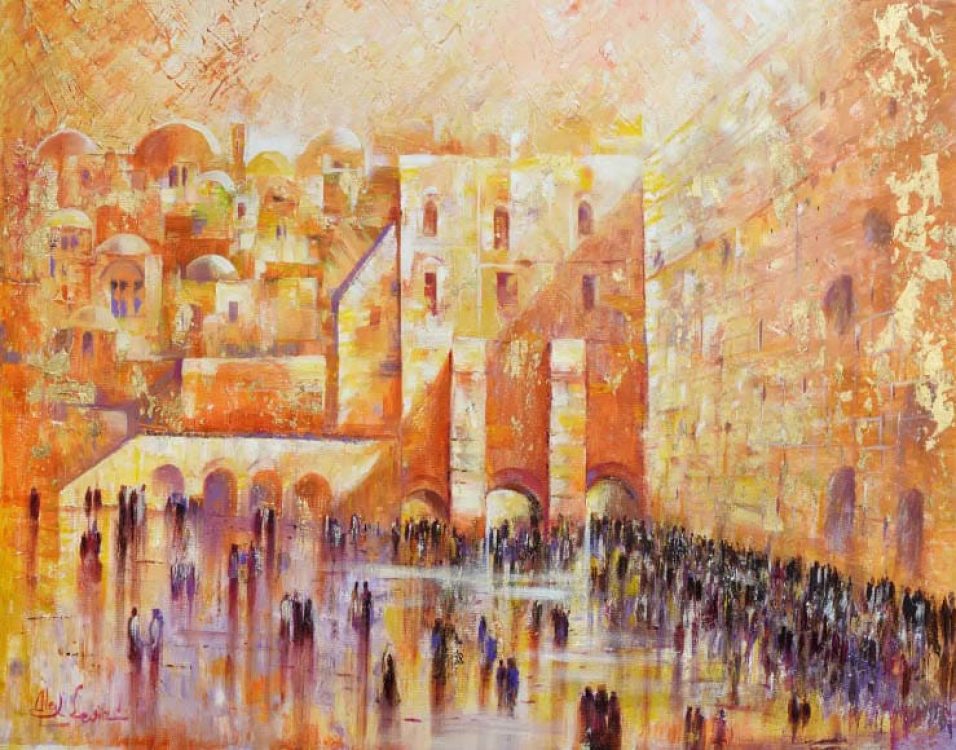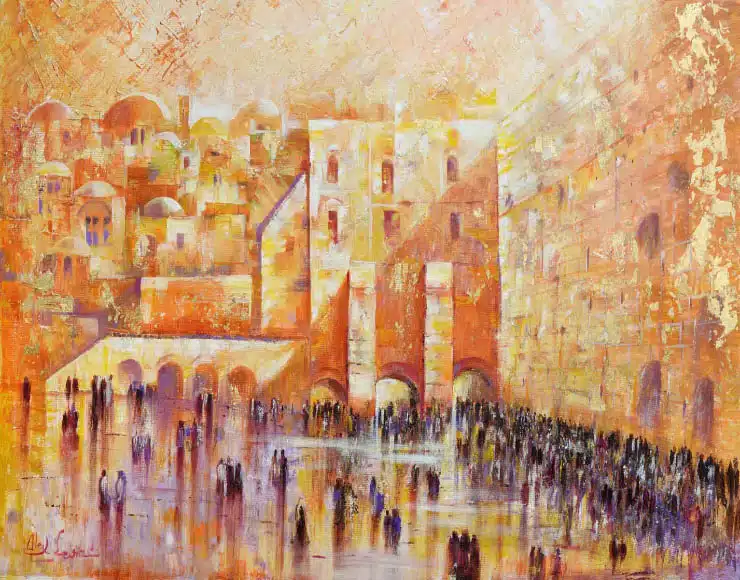
In the heart of the ancient city of Jerusalem, where every stone whispers tales of history, faith, and spirituality, Alex Levin finds his muse. A master of capturing the ethereal essence of this sacred place, Levin’s paintings transcend mere visual appeal to resonate with the soul. His works invite viewers into a deeper exploration of Jerusalem’s spirit, where light, color, and texture weave a tapestry of divine beauty and profound meaning.
Capturing Sacred Light: Alex Levin’s Jerusalem Visions
Alex Levin’s paintings of Jerusalem are a testament to his profound ability to capture sacred light. The sun-drenched stones of the Old City come alive under his brush, each hue reflecting a unique facet of Jerusalem’s multifaceted character. Levin’s deft use of light and shadow creates a dynamic play of colors that evoke the city’s timeless aura. His paintings transform the everyday into the extraordinary, inviting viewers to step into moments where the divine touches the earthly.
In Levin’s masterpiece, “Jerusalem of Gold,” the city is bathed in a luminous glow, as if kissed by the first light of creation. The golden hues symbolize not just the physical beauty of the city, but its spiritual significance as well. This painting, like many others in his collection, captures the essence of Jerusalem as a holy beacon and a symbol of eternal hope. Each brushstroke reflects Levin’s deep spiritual connection to the city, inviting viewers to share in this sacred experience.
The texture in Levin’s paintings adds another dimension to his work, bringing Jerusalem to life in a tactile way. His use of rich, layered paints gives depth to the cityscapes, making the viewer feel as though they could reach out and touch the ancient walls. The textures speak to the enduring resilience of Jerusalem, a city that has weathered the storms of history yet remains a steadfast symbol of faith and unity.
The Spiritual Symbolism in Levin’s Masterpieces
Spiritual symbolism runs deep in Alex Levin’s Jerusalem paintings. Each piece is infused with elements that invite contemplation and reflection. The artist skillfully incorporates symbols of faith, such as the Western Wall and the iconic Dome of the Rock, into his compositions. These symbols serve as visual anchors, grounding the viewer in the deep spiritual heritage of Jerusalem while encouraging an exploration of personal beliefs and emotions.
In “The Wailing Wall at Sunset,” Levin captures a moment of serene devotion. The painting radiates a sense of peace and introspection, as the warm colors of the setting sun bathe the ancient stones in a gentle glow. This work symbolizes the eternal dialogue between heaven and earth, highlighting the wall as a place of prayer, hope, and connection. Levin’s art becomes a gateway for viewers to engage with their own spiritual journeys, guided by the serene beauty of his vision.
Levin’s use of color further enriches the symbolic language of his paintings. The blues of the sky suggest infinity and divine presence, while the earth tones of the city evoke a sense of grounding and stability. These colors, artfully blended, create a harmonious balance that reflects the complex spiritual landscape of Jerusalem. Each painting becomes a meditation on the interplay between the physical and the spiritual, inviting viewers to discover the sacredness within themselves.
Alex Levin’s paintings offer more than just a visual journey through Jerusalem; they are an invitation to explore the profound spiritual dimensions of this ancient city. His art captures the luminous beauty and deep symbolism of Jerusalem, allowing viewers to experience its sacred essence in a deeply personal way. Whether standing before the radiant glow of a sunlit cityscape or contemplating the serene spirituality of a sunset at the Western Wall, Levin’s works inspire reflection and connection.
Discover more sacred art by Alex Levin at https://artlevin.com/. Explore the Jerusalem paintings collection to immerse yourself in the spiritual heart of this timeless city, where art becomes a bridge between the earthly and the divine.
JERUSALEM PAINTINGS





